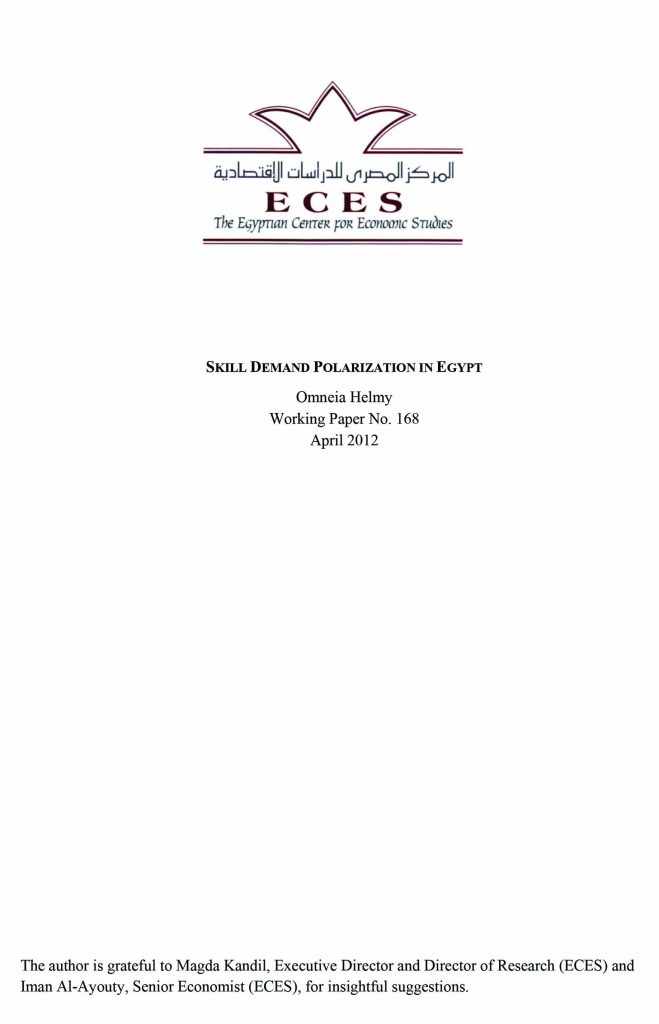Abstract:
By tracking changes in the employment and wage structure of 9 high, middle and low skilled occupations in 18 economic activities over the period 2000-2009, this paper provides evidence that skill demand polarization is growing in Egypt and wage disparity is widening. The empirical analysis indicates that the demand for middle skilled workers has declined in 2009, compared to 2000, reflecting structural changes where an increase in technological innovation and variation in labor demand appear to be hollowing out the middle across all economic activities over time. Moreover, structural product-demand shifts have increased the relative demand for high and low skilled workers across economic activities, hence reinforcing polarization of the employment and wage structures in Egypt. However, the growth of the private sector has provided room to increase demand for all skills, particularly those of the middle skills, mitigating the effect of polarization. Looking forward, a well targeted industrial policy is needed to mobilize demand for middle skilled workers, particularly in the manufacturing activities. Also, identifying the skills demanded by the private sector is key to lowering the unemployment rate among the youth and alleviating social and political tensions. Finally, upgrading products and investing in activities with high job content of growth would help stimulate product demand and mobilize employment, thereby narrowing wage disparities across activities, in line with productivity indicators.

